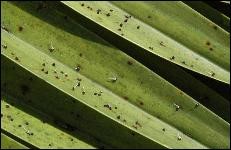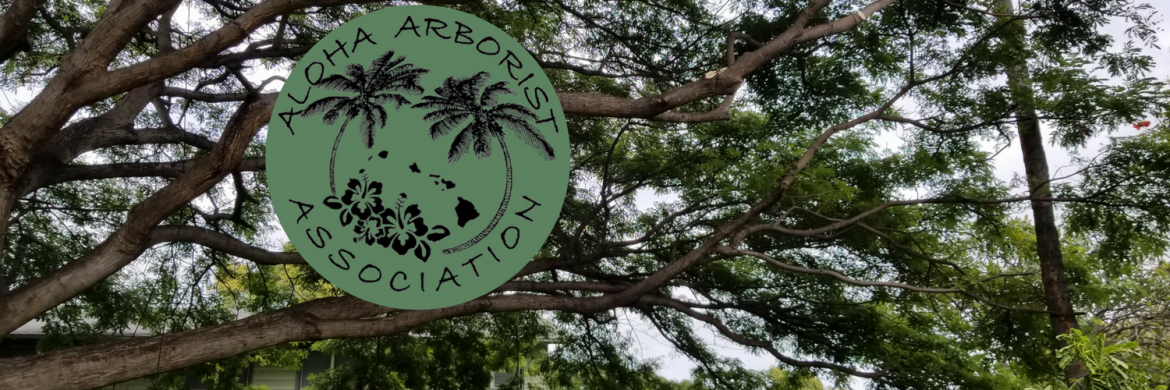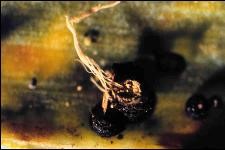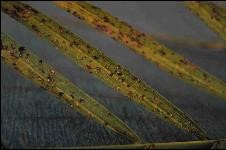Graphiola leaf spot – Graphiola phoenicis

The small black bodies are sori (fruiting bodies) of Graphiola phoenicis that have erupted through the leaflet epidermis. The black spots are symptoms of potassium deficiency, and not Graphiola leaf spot. Credit: M.L. Elliott
- Hosts: The primary hosts in Floridaare Phoenix species, especially Phoenix canariensis (Canary Island date palm) and Phoenix dactylifera (date palm).
- Distribution: Widely distributed throughout the date-palm growing world.
- Damage: Very small black, cup-shaped fungal bodies (sori) are present on leaf blade of the oldest leaves. This disease is primarily cosmetic – it does not adversely affect plant growth.
- Control: Remove diseased leaves only. Fungicides may be useful for managing this disease, but research is limited as to products to use and timing of applications.
- Other: Confusion regarding the seriousness of the disease occurs because most Phoenix palms grown in Florida suffer from nutrient deficiencies, which are far more debilitating than this disease.
For full length article click on link – July 2013 Pest – Graphiola Leaf Spot
Source: http://edis.ifas.ufl.edu/pp140#.UbJ4wzi3kIc.email
Website provided by the University of Florida – Institute of Food and Agricultural Sciences Extension



